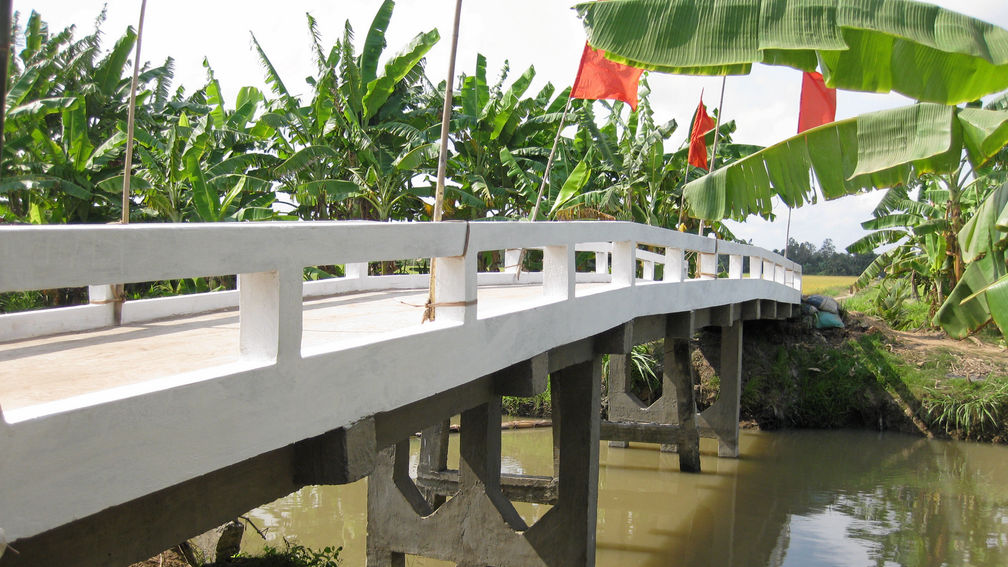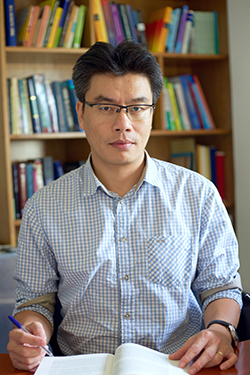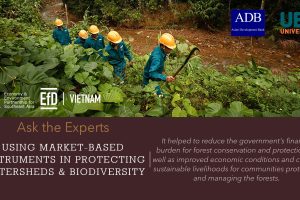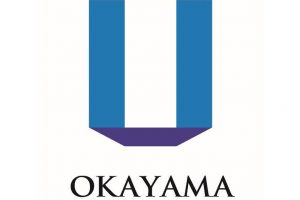
The bridge, which would be led to cooperation in Vietnam
A new bridge over the Mekong River in Vietnam. It was the result of a research project at the University of Gothenburg on economic cooperation.
People want to work and contribute to joint ventures even if they have the chance to slip away. The conclusion drew economist Pham Khanh Nam in his doctoral thesis in 2011.
He offered a group of poor farmers in his native Vietnam to voluntarily provide grants for the construction of a new bridge over the Mekong River – a bridge that everyone would use whether they gave any contribution or not.
Two hundred rice farmers each received about 400,000 dong, equivalent to 140 Swedish kronor a gift. They were also informed that the bridge could only be built on the villagers together contributed a certain sum. The grants would be given anonymously so no one knew about, or how much, the individuals chosen to pay.
According to traditional economic theory, the bridge should not have become a reality. This is because people tend to free ride on the efforts of others when they themselves can benefit from it. But the bridge was built, as a result of the research project.
“Each family could choose to keep all of the donated sum or contribute any amount from 0 to 400,000 dong”, says Pham Khanh Nam. If there was any money left over would be allocated back to the villagers in proportion to the amount they contributed.
The families were divided into five groups. In one, participants were told that one of the most common contributions that others gave to the bridge was 100,000 dong, a fairly low amount.
In another group, participants were choosing among several alternative amounts by moving a cursor, which stood at zero from the beginning.
“In both groups, the average premium of 20 percent compared with the groups that did not receive any information at all”.
The individual’s contribution to a common resource affected thus of information on how others had chosen to contribute, as well as if there was a default option.
“My results are useful especially in developing countries, where the construction of public goods such as roads and bridges is not only dependent on the state, but also by people’s voluntary contributions”, says Pham Khanh Nam. “We show that the design of information affects the ability of a society to achieve common resources, which in turn is vital for economic and social development”.
Pham Khanh Nam has continued to take an interest in why and how people work together. “People are willing to cooperate, and it also shows the preliminary results of my current research here in Vietnam”.
His research is in line with a series of studies showing that people want and can collaborate on shared resources. Not least, the American political scientist Elinor Ostrom, who died in 2012, presented the exciting research.
She got Economics Prize Memory of Alfred Nobel three years earlier. In her studies she showed that people who jointly manages and has authority over natural resources will find ways to manage them in sustainable ways.
Like when fishermen in Alanya in Turkey has an advanced system to rotate the best fishing spots between them. Or that farmers in Spain for centuries have had self-regulating irrigation systems with at most over ten thousand participants in each.
In Vietnam, residents of the small village of Giong Trom today confidently walking across the new bridge – without the risk of falling between the half-rotted wooden planks.
Doctor Thesis title: “Prosocial behavior, social interaction and development. Experimental Evidence from Vietnam “.
Thomas Lerner
Source: Dagens Nyheter



